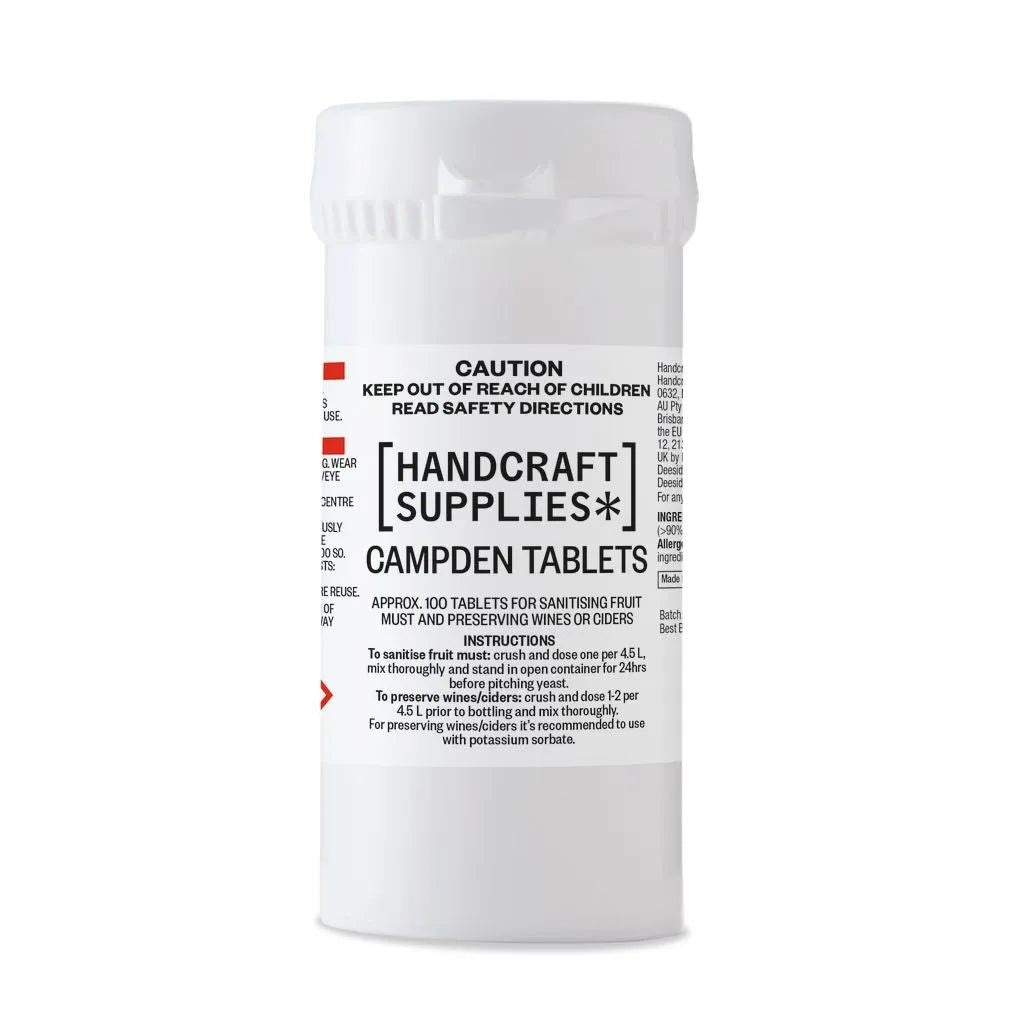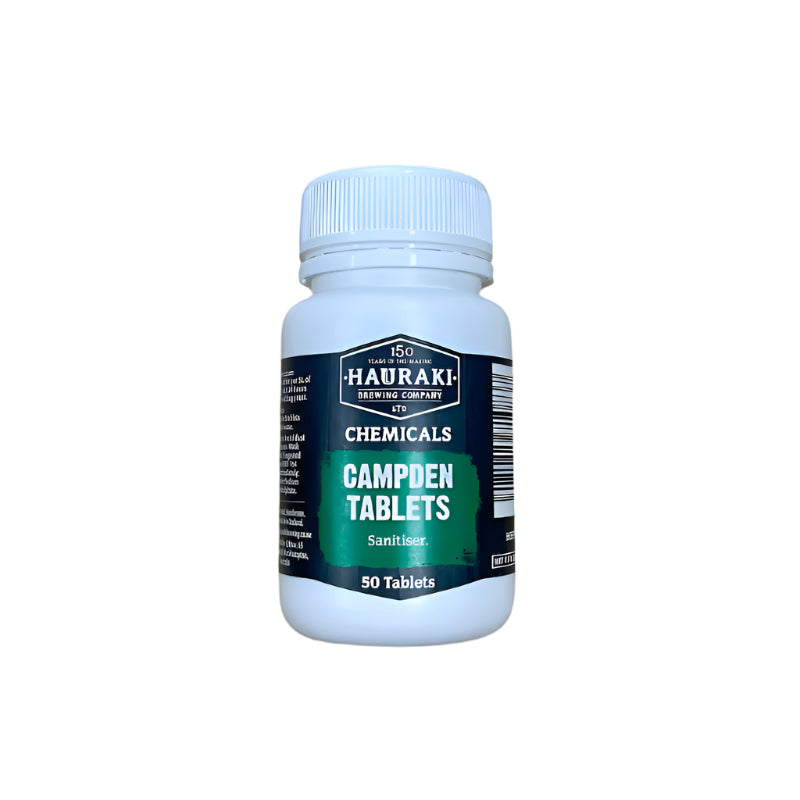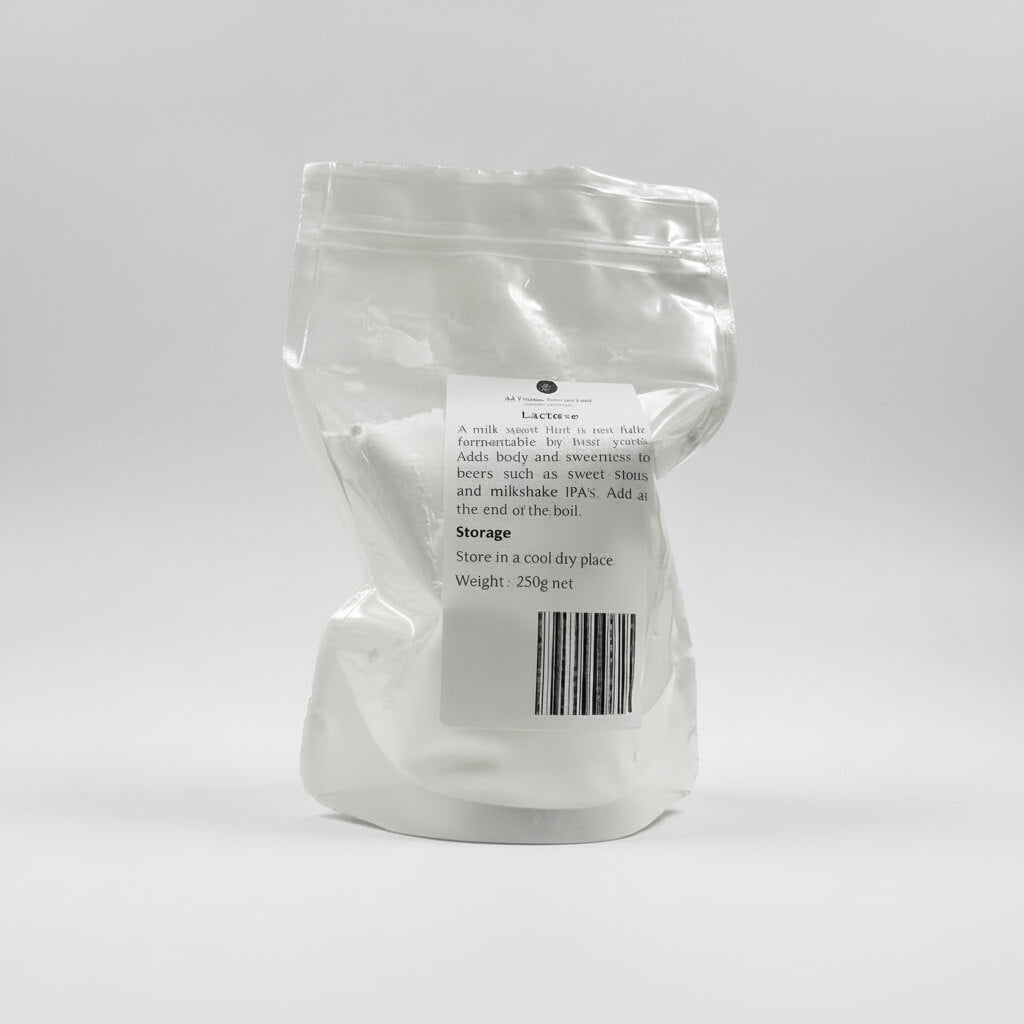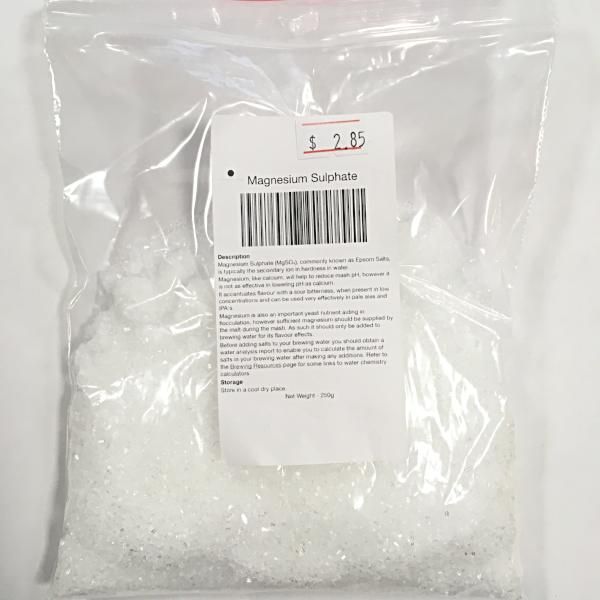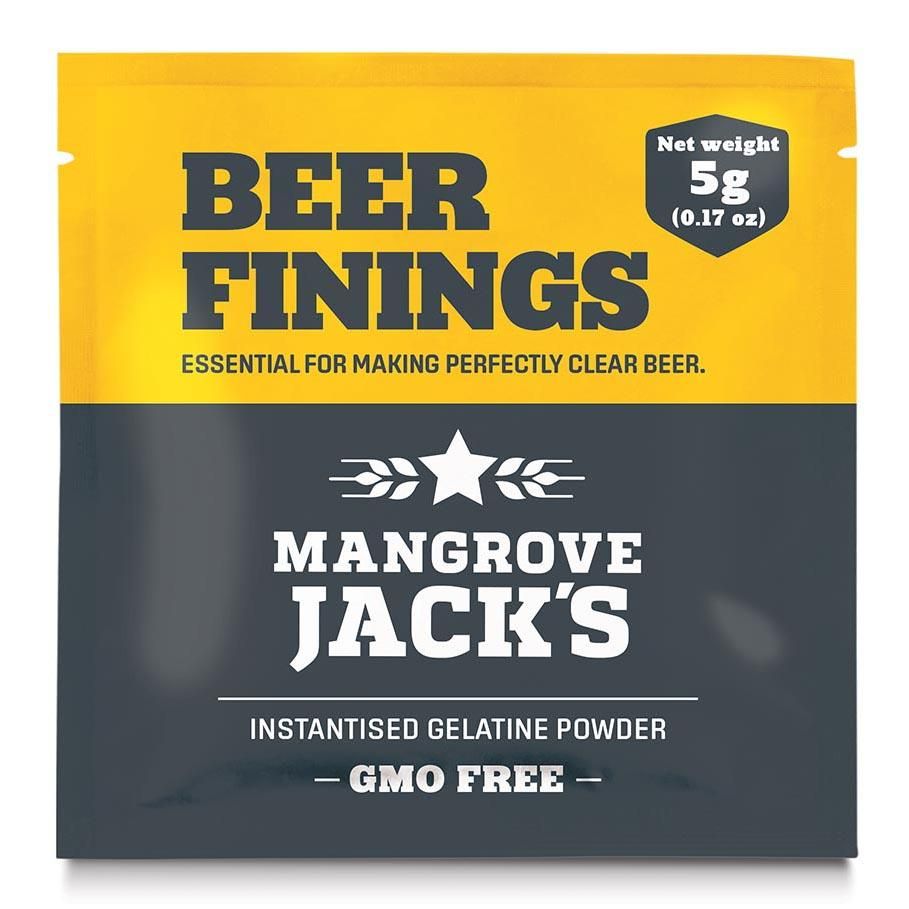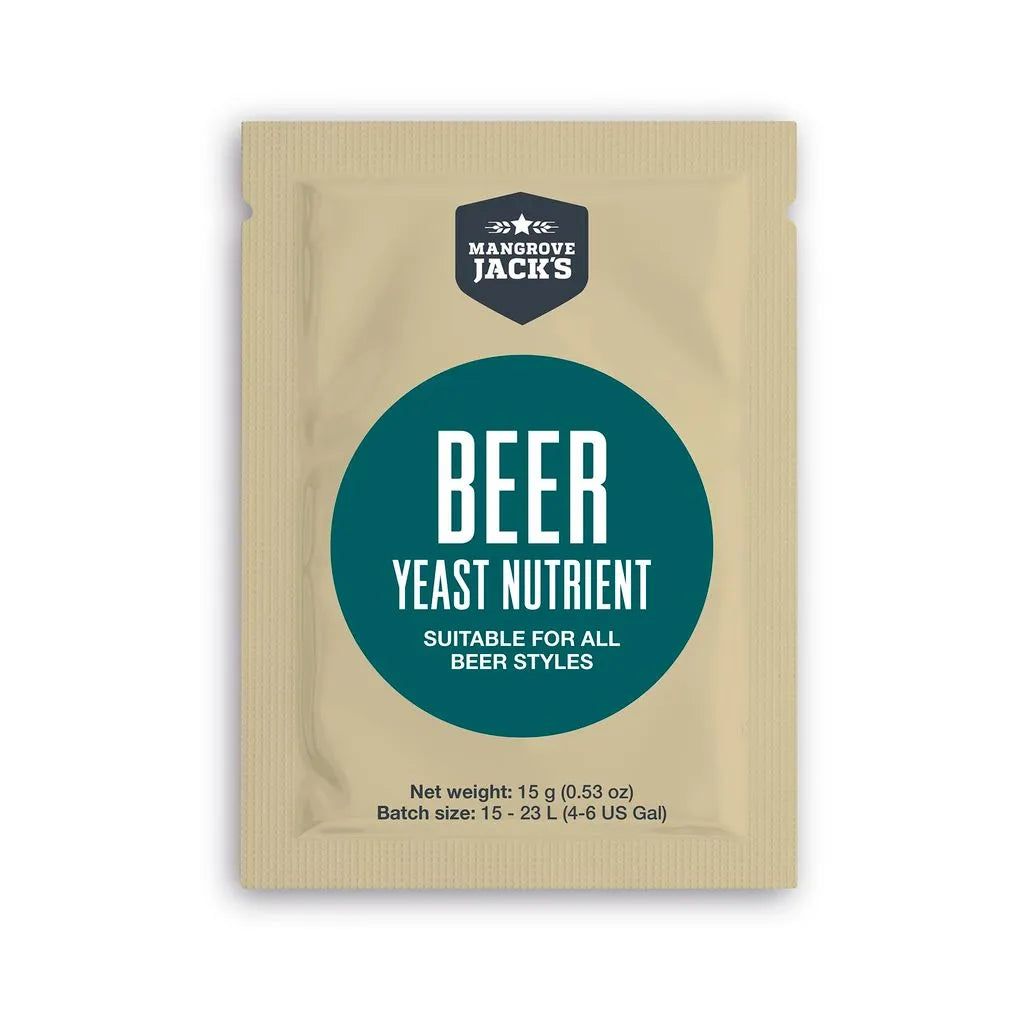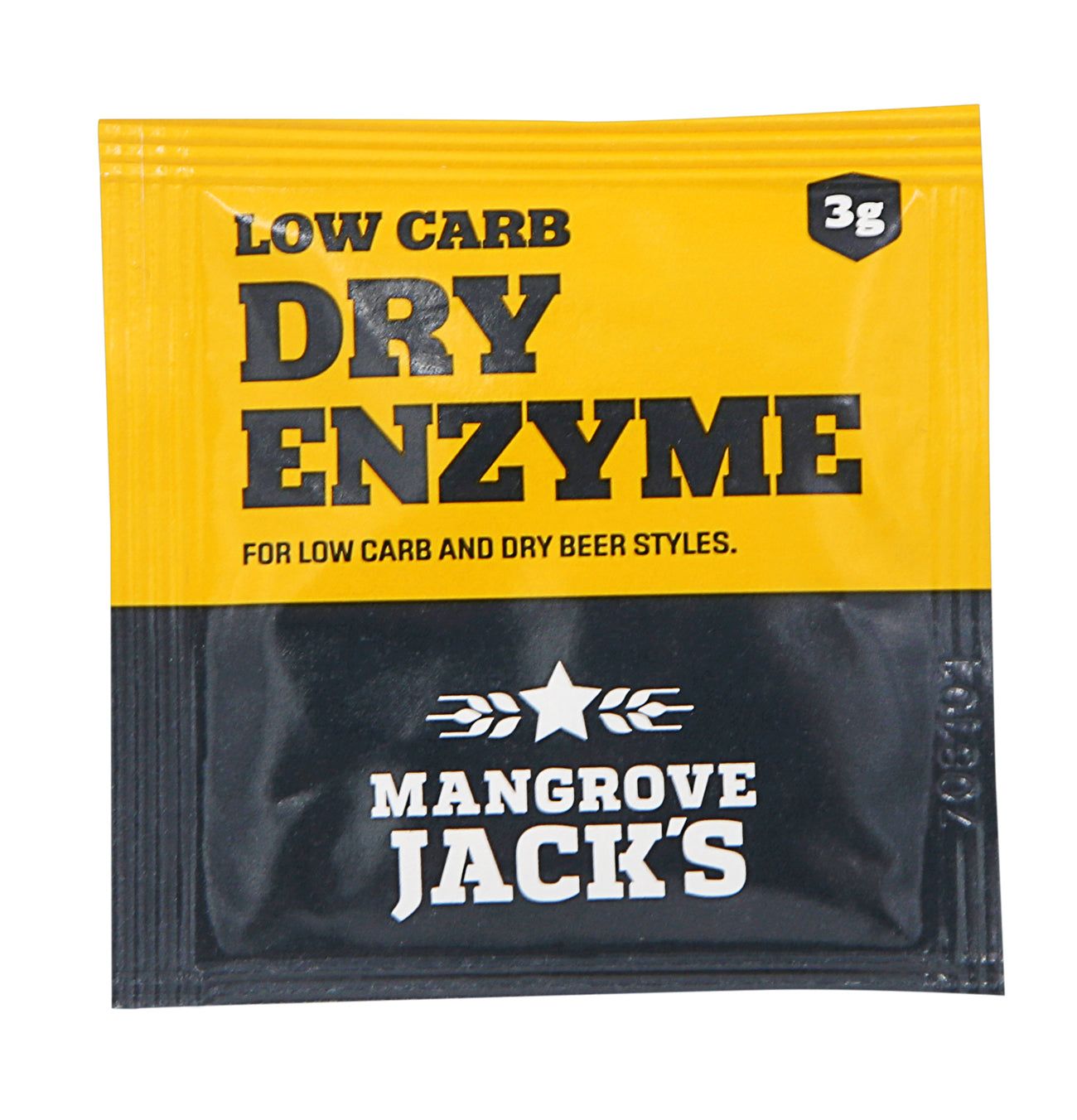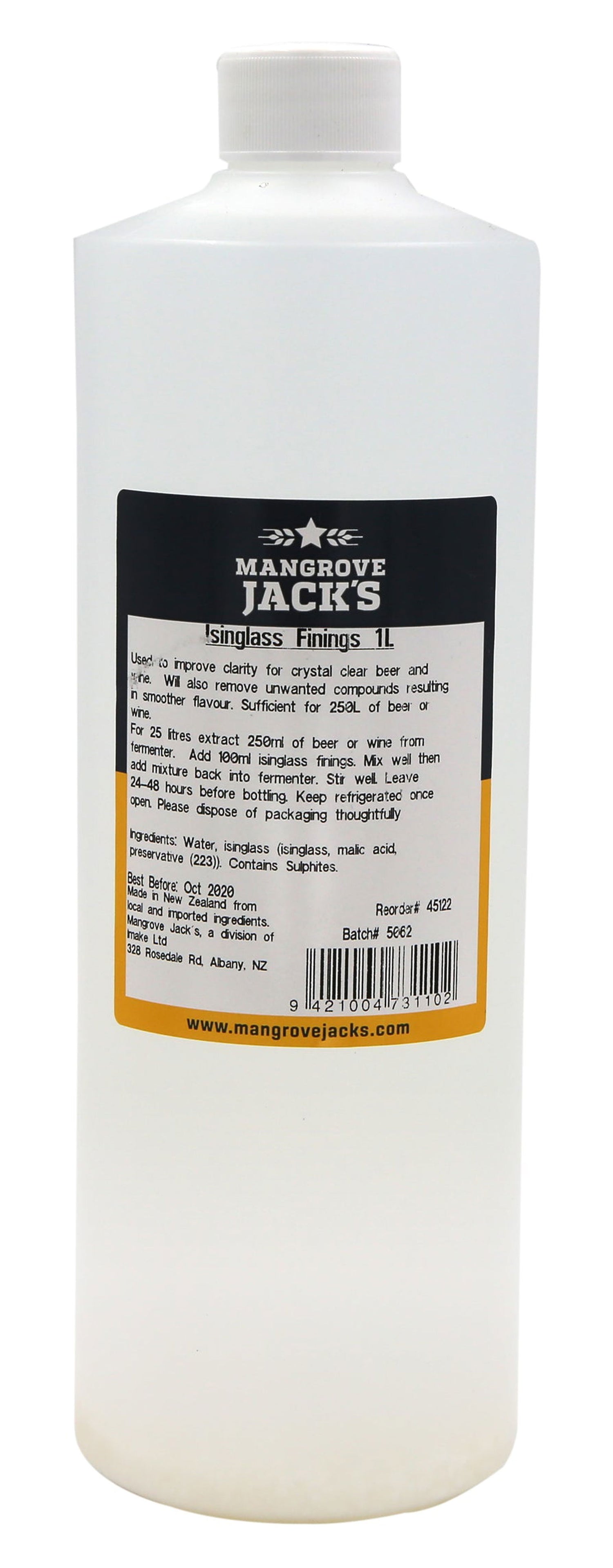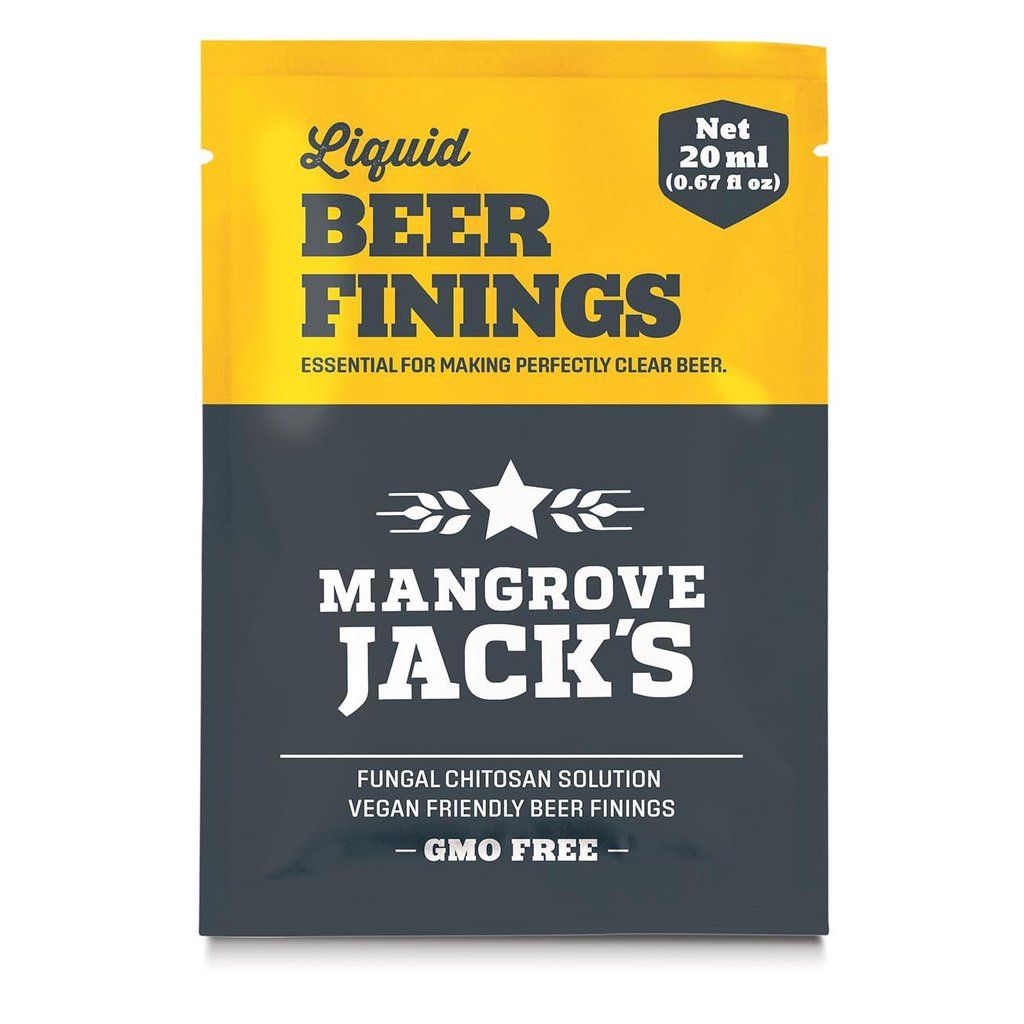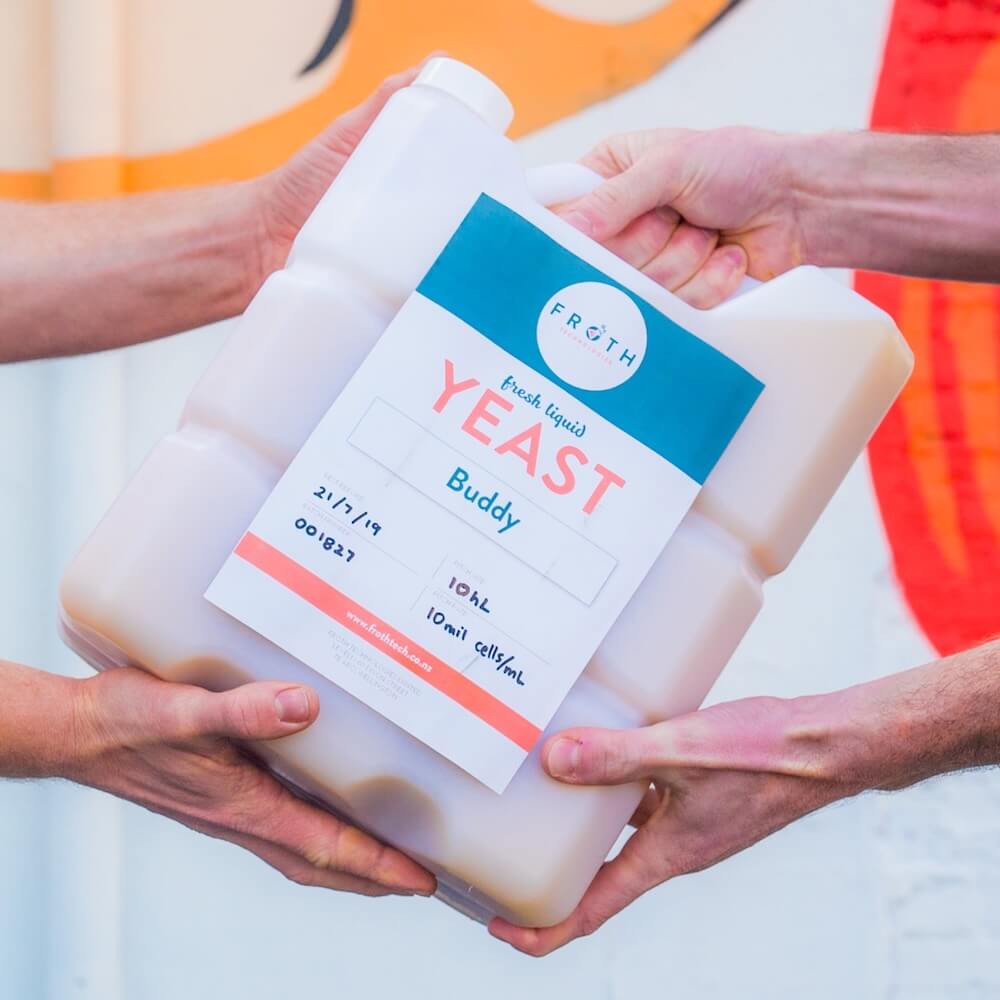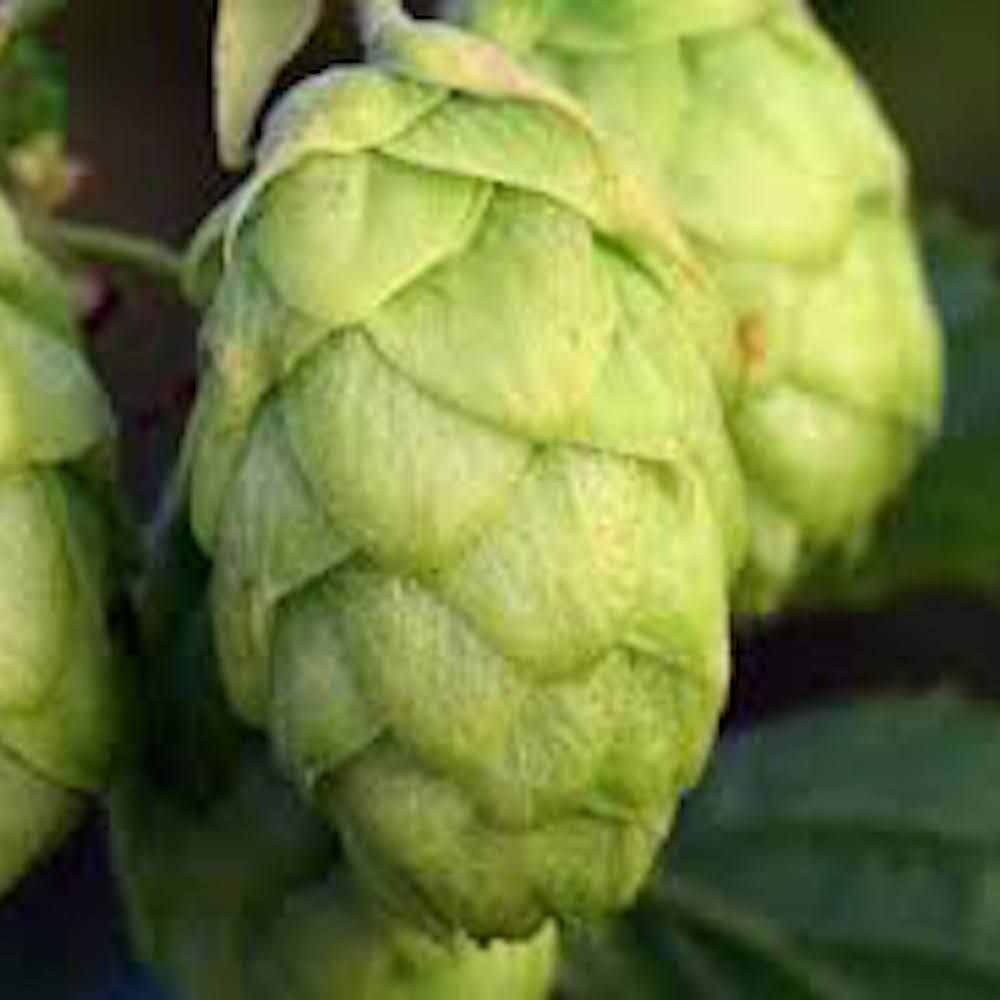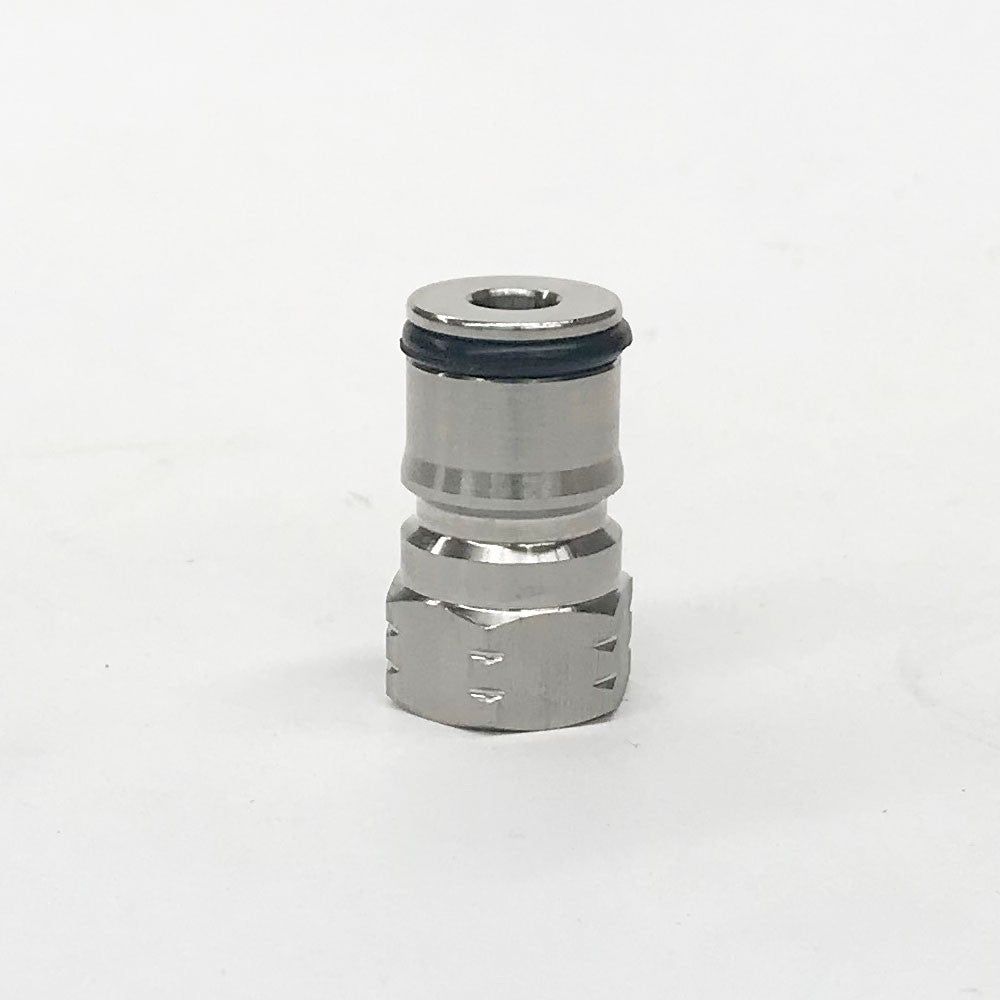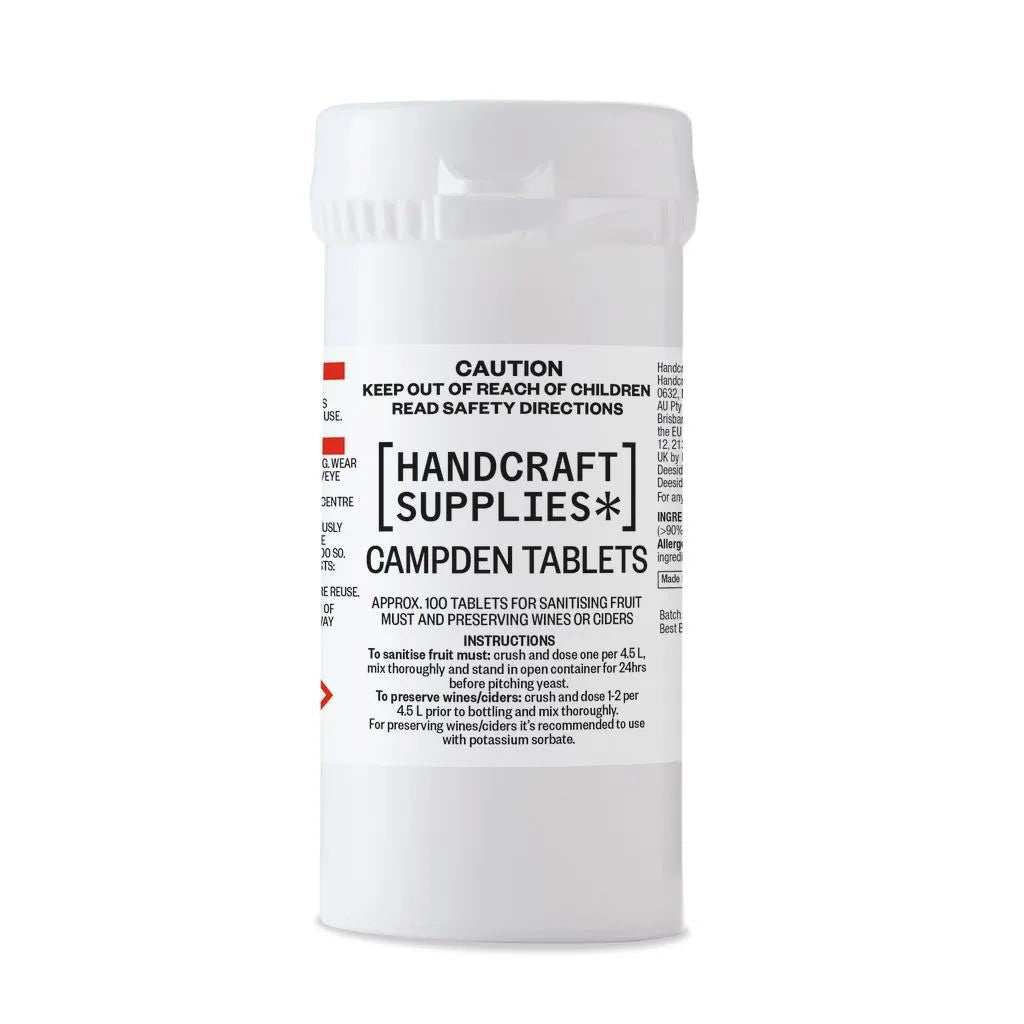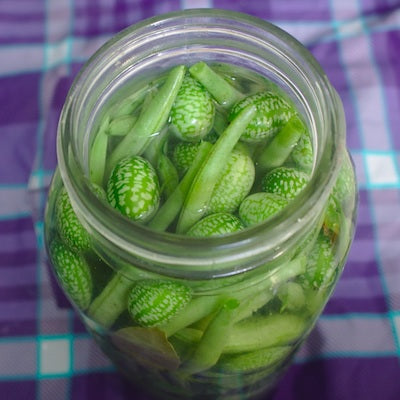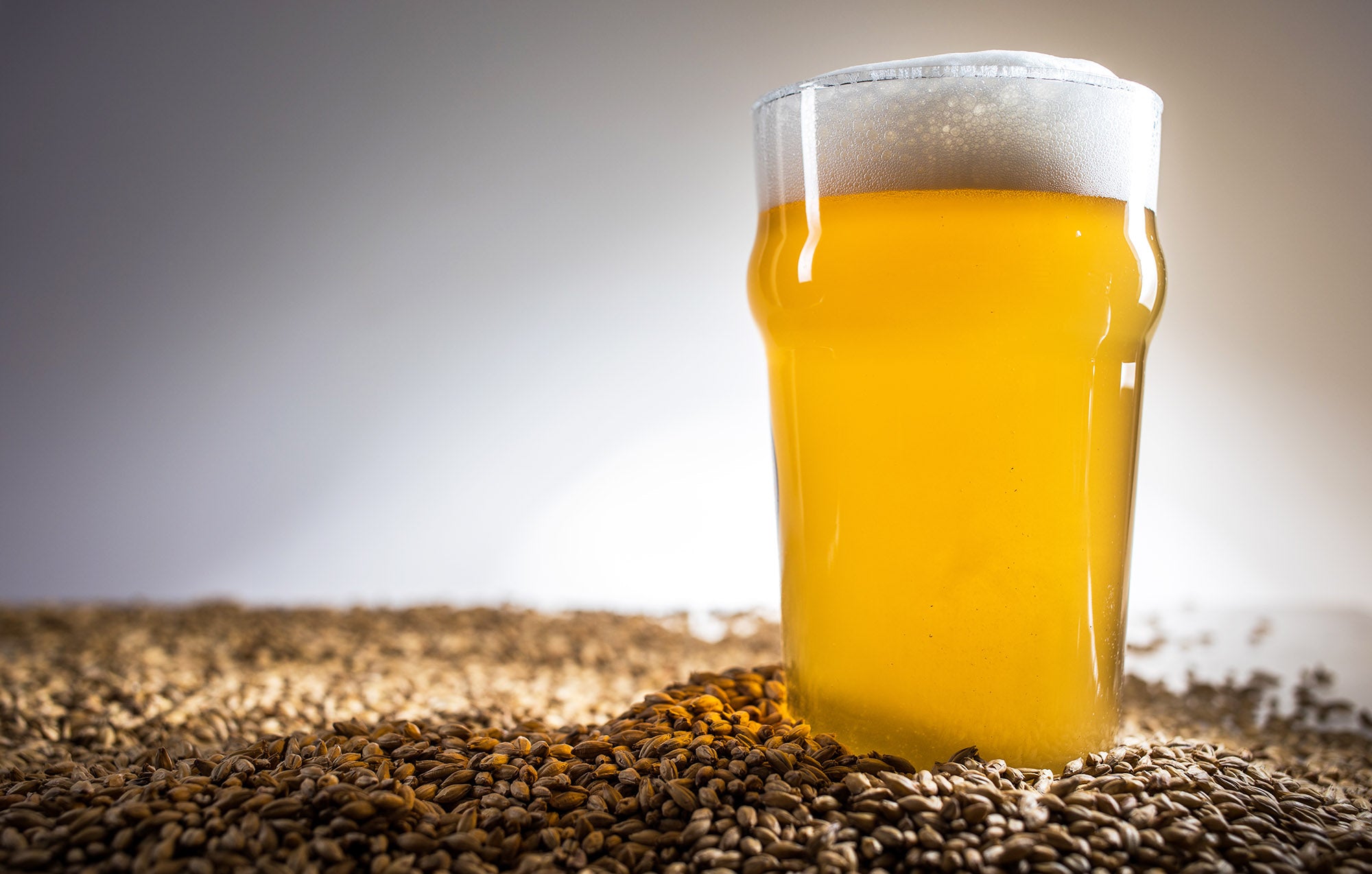Sort by:
ABV Aromazyme is a food-grade enzyme preparation with a strong glycosidase activity that enables biotransformation to occur during fermentation creating a range of potentially bold new primarily fruity flavours. Biotransformation is particularly sought after when brewing NEIPA (hazy) beers.
With a dosage rate of 0.05g/L, this vacuum sealed pouch containing 1.2g of Aromazyme is sufficient to dose 23L - 24L of beer.
For Optimal Results
When using ABV AROMAZYME, the following factors should be considered: Dry-hopping early in fermentation will result in greater extraction of terpene glycosides. Add the enzyme mid-fermentation to allow time for the enzyme to break down glycosides and the actively fermenting yeast to consume the glucose released from the reaction, while minimising volatile loss from CO2 stripping. Avoid adding enzyme after filtration.
Benefits
- Increases the diversity of hop flavours and aroma by changing the ratio
of specific terpene compounds - Enhances the beer mouthfeel and drinkability by reducing unpleasant harsh bitterness
- Slightly increases wort fermentability
- Expresses more character from less sophisticated hop varieties
Dosage Rate & Application
- The recommended dosage is 5g/hL (0.05g/L).
- ABV AROMAZYME has optimal activity between pH 3.5-6.5, although lower activity is still observed at pH 3.0 for use in sour beers. The optimal temperature range is 15-65ºC.
- Dilute the enzyme in an adequate amount of water (~ 1g in 10ml) to ensure even distribution within the fermenter.
Click here for the technical data sheet.
Calcium carbonate (CaCO3) is a common substance found in rocks as the minerals calcite and aragonite (most notably as limestone, which is a type of sedimentary rock consisting mainly of calcite) and is the main component of pearls and egg shells.
In brewing calcium carbonate may be used during the mash to increase the mash pH (reduce acidity), however it may not increase mash pH as much as desired. Click here to read a detailed analysis of calcium carbonate in brewing written by A.J. deLange.
In wine making calcium carbonate may be used to reduce acidity levels in must. It should only be used before fermentation and will reduce tartaric acid levels before malic or citric acids. It does not require cold stabilisation to precipitate out like potassium carbonate, but it will take longer and may affect flavour.
Calcium chloride is a crystalline salt with the chemical formula CaCl2. It is solid at room temperature and highly soluble in water. It is one of the primary components in the measurement of permanent water hardness.
In brewing calcium chloride may be added to brewing water to increase calcium levels. Proper calcium levels in brewing water can:
- reduce mash pH
- preserve mash enzymes
- increase extract yield
- improve yeast growth and flocculation
- accelerate oxalate removal
- reduce colour.
Chloride is believed to promote a palate fullness, sweetness, or mellowness within the flavour profile of beer.
Before adding salts to your brewing water you should obtain a water analysis report to enable you to calculate the amount of salts in your brewing water after making any additions. Refer to the Brewing Resources page for some links to water chemistry calculators.
Click here to read the Bru'n Water Water Knowledge page, which contains everything you need to know about brewing water.
- reduce mash pH
- preserve mash enzymes
- increase extract yield
- improve yeast growth and flocculation
- accelerate oxalate removal
- reduce colour.
The sulphate ion in calcium sulphate is thought to promote a drier beer, which in turn may allow bitterness and hop flavours and aromas to be more prominent. Adding calcium sulphate to brewing water is common when brewing pale ales and India pale ales.
Before adding salts to your brewing water you should obtain a water analysis report to enable you to calculate the amount of salts in your brewing water after making any additions. Refer to the Brewing Resources page for some links to water chemistry calculators.
Click here to read the Bru'n Water Water Knowledge page, which contains everything you need to know about brewing water.
Handcraft Supplies Campden Tablets for use in winemaking to sanitise fruit must or to preserve wines/ciders. Simply crush and dose as per instructions on label.
Can also be used to remove chlorine and chloramine from brewing water.
Approximately 100 tablets in a tamper proof and resealable tub.
Contains sodium metabisulphite.
Caution: Gives off toxic gas. Avoid vapours and contact with sensitive skin.
Campden Tablets for use in winemaking to sanitise fruit must or to preserve wines/ciders. Simply crush and dose as per instructions on label.
Can also be used to remove chlorine and chloramine from brewing water.
Approximately 50 tablets in a tamper proof and resealable tub.
Contains sodium metabisulphite.
Caution: Gives off toxic gas. Avoid vapours and contact with sensitive skin.
Lactic Acid is primarily used in brewing to reduce the pH of brewing water to ensure the optimum pH for enzyme activity during the mash.
It may also be used to reduce the pH of sparge water to reduce the risk of tannin extraction.
In Germany, some breweries will maintain lactic fermentations and use the resulting liquid to make pH adjustments during the brewing process without breaking Reinheitsgebot.
Click here to read the Bru'n Water Water Knowledge page, which contains everything you need to know about brewing water.
Magnesium Sulphate (MgSO4), commonly known as Epsom Salts, is typically the secondary ion in hardness in water.
Magnesium, like calcium, will help to reduce mash pH, however it is not as effective in lowering pH as calcium.
It accentuates flavour with a sour bitterness, when present in low concentrations and can be used very effectively in pale ales and IPA's.
Magnesium is also an important yeast nutrient aiding in flocculation, however sufficient magnesium should be supplied by the malt during the mash. As such it should only be added to brewing water for its flavour effects.
Before adding salts to your brewing water you should obtain a water analysis report to enable you to calculate the amount of salts in your brewing water after making any additions. Refer to the Brewing Resources page for some links to water chemistry calculators.
Click here to read the Bru'n Water Water Knowledge page, which contains everything you need to know about brewing water.
Mangrove Jack's Beer Finings are a gelatine based fining that will help to clarify your beer, removing unwanted compounds and firming up natural sediment for a crystal clear beer.
Instructions: Dissolve sachet contents into half a cup of luke warm water (not hot). Stir until completely dissolved. Add this solution to your beer after fermentation. Allow settling for two days before racking off, bottling, or kegging.
GMO free.
Ingredients:
Used to improve clarity for crystal clear beer and wine. Will also remove unwanted compounds resulting in smoother flavour. Sufficient for 250ml of bear or wine.
For 25 litres extract 250ml of beer or wine from the fermenter. Add 100ml of isinglass finings and mix well before adding back to the fermenter. Stir well and leave for 24 - 48 hours before packaging.
Keep refrigerated once open.
Mangrove Jack's Liquid Beer Finings help to clarify your beer; removing unwanted compounds and firming up natural sediment for a crystal clear beer.
Simply pour into your wort and leave the beer for 24 hours to allow for the sedimentation of yeast and trub.
Sufficient for up to 23 litres of beer.
This product is GMO free and made from fungal chitosan.
Suitable for Vegetarians and Vegans.
Contains sulphites.
Protafloc granules is a granular carrageenan product which is added to wort in the kettle to enhance protein removal as the wort cools.
Benefits
- Natural product which removes substantial quantities of haze forming material without affecting head retention
- Produces brighter worts, reducing the amount of finings required later
- Increases rate of fermentation and attenuation
- Increases filter runs
- Prolongs shelf life in small pack beers
Application
Protafloc Granules should be added to the kettle ten to fifteen minutes prior to the end of the boil or to the whirlpool if this is not possible. This allows the powder to dissolve and disperse the carrageenan into the wort. Should Protafloc be added early in the boil, degradation of the polymer may occur and product efficiency is lost. The reaction between wort proteins and carrageenan is pH dependant and occurs at an optimum pH of 5.3. Below pH 4.4, the reaction does not occur and little benefit is gained from using Kettle finings.
Dosage
The usual dosage rate is 0.0075g - 0.048g per litre of wort. This equates to 0.18g - 1.15g for 24 litres of wort.
Servomyces D50 is a naturally zinc enriched single-strain brewing yeast (from the prestigious Hefebank Weihenstephan) that is used as a biological yeast nutrient. The propagation and drying process of Servomyces D50 has been specifically designed to accumulate a high concentration of zinc that is essential for healthy alcoholic fermentation.
Usage
1 g Servomyces D50 is used for 100 litres of wort for fermentation. This equates to 0.1g per 10 litres.
2 g Servomyces D50 is used for 100 litres of wort for propagation. This equates to 0.2g per 10 litres.
Practical trials have shown that addition of Servomyces D50 should be made to the kettle about ten minutes before the end of the boil.
Infusion spirals provide simple and fast extraction of oak aroma and flavour at a fraction of the price of a barrel. They are also really easy to add to bottles or a carboy and remove afterwards, there is no need to filter out chips.
These can be used in spirits, wine, beer and cider.
Wine: Use 1 spiral per 11 to 23 L for 6 weeks or until desired flavour is achieved.
Beer, spirits and cider: Use 1 spiral per 11 L for 3 - 6 weeks or until desired flavour is achieved.
Infusion spirals provide simple and fast extraction of oak aroma and flavour at a fraction of the price of a barrel. They are also really easy to add to bottles or a carboy and remove afterwards, there is no need to filter out chips.
Use 1 spiral per 1 L of beer, spirit or cider and leave for
1 to 2 weeks, or until desired flavour is achieved.
Infusion spirals provide simple and fast extraction of oak aroma and flavour at a fraction of the price of a barrel. They are also really easy to add to bottles or a carboy and remove afterwards, there is no need to filter out chips.
These can be used in spirits, wine, beer and cider.
Wine: Use 1 spiral per 11 to 23 L for 6 weeks or until desired flavour is achieved.
Beer, spirits and cider: Use 1 spiral per 11 L for 3 - 6 weeks or until desired flavour is achieved.
Infusion spirals provide simple and fast extraction of oak aroma and flavour at a fraction of the price of a barrel. They are also really easy to add to bottles or a carboy and remove afterwards, there is no need to filter out chips. These can used in spirits, wine, beer and cider.
Wine: Use 1 spiral per 11 to 23 L for 6 weeks or until desired flavour is achieved.
Beer, spirits and cider: Use 1 spiral per 11 L for 3 - 6 weeks or until desired flavour is achieved.
Super F is a blended formulation that has been specifically designed for the rapid sedimentation of yeast, protein and other haze forming particles primarily for use in tank conditioned beer.
Benefits
- Rapid action finings to be used in maturation or conditioning tank
- Suitable for beers to be bottled
- Suitable for keg beers
- Low dosage rates
- Super F is stable at ambient temperatures
- Concentrated
Application
Super F is best added during transfer of beer from fermentation vessel (FV) to maturation vessel or conditioning tank.
Rates of Use
This product must be mixed prior to use.
Rates of addition are typically within the range of 0.70ml per litre up to 1.75ml per litre. The exact rate will depend upon whether or not kettle finings have been used, the addition of auxiliary finings, the degree of yeast flocculation, yeast count, pH, temperature (chilling the beer is recommended for optimal performance) and the strength of the beer. Optimisations should be carried out to determine the dosage rates more accurately. If you have used the correct dosage rate the beer should clear in 24 - 48 hours. The sediment should be firm with no fluffy appurtenance above the sediment.
Super F is vegan friendly and meets the German Purity Law.
Purity level meets EU regulations for food and beverage applications.
Whirfloc is an extract of red seaweed specifically formulated as a fining agent which clarifies wort and improves wort sedimentation. This leads to a cleaner and more efficient fermentation.
This comes in quick dissolving, highly soluble tablet form, with 10 tablets in a pack. Add 1 tablet per 19-23 L batch about 15 minutes before the end of the boil.
Yeast Vit is a specially formulated blend of organic salts, vitamins, amino acids and trace elements, along with an approved organic source of nitrogen, designed to ensure your wort is not nutrient deficient..
Nutrient deficiencies in wort can cause:
- A long lag phase.
-
High pH
- Sticking fermentations
- Poor flocculation
The benefits of ensuring your wort is not nutrient deficient are:
- Improved rate of yeast growth.
- Prevention of slow fermentations
The product can be mixed into the yeast slurry about 30 minutes before pitching into the wort, or alternatively mixed with a small volume of wort and added to the fermenter. It can also be added to the kettle at the end of the boil.
Rates of Use
Yeast Vit should be added at a rate of between 0.035g and 0.085g per litre of wort. A Suitable starting rate would be 0.05g per litre. This equates to 1.25g for 25 litres of wort making it extremely economical.
Composition
Vitamins B1, B2, B6, and B7, along with derivatives of panthothenic and nicotinic acids. The amino acid range includes valine, methionine, and aspartic acid, along with the derivatives inositol, asparagine and sodium glutamate. Trace elements include zinc, manganese, potassium, magnesium, iodine and boric acid.
Store between 10℃ and 15℃.
